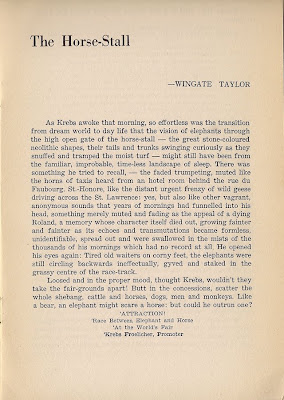THE HEART ACCEPTS IT ALL
SELECTED LETTERS OF JOHN GLASSCO
BOOK LAUNCH
Wednesday, 14 August 2013, 7:30 p.m.
THE WORD
467 Milton Street
Montreal
A JOURNEY THROUGH CANADA'S FORGOTTEN, NEGLECTED AND SUPPRESSED WRITING
The editor of this mag, John Sutherland, is a very decent chap, about 30, a pretty good drinker too...The April & May 1945 issue of influential Montreal little magazine First Statement. Irving Layton, A.M. Klein, Patrick Anderson, Ralph Gustafson, Miriam Waddington... amongst the lesser-known writers we find Wingate Taylor, "a farmer in the Eastern townships [sic] of Quebec." He's better remembered – though, in truth, he's barely remembered at all – as Graeme Taylor, the man who shares many adventures with John Glassco in Memoirs of Montparnasse.
– John Glassco, letter to Robert McAlmon, 16 August 1944

You wrote that you used to write as Brian John Busby. Someone called Brian John Busby wrote for a Canadian TV show called "Time of Your Life". Are you that Brian John Busby?Yes, I am. A low-budget, low-rent teen soap, Time of Your LIfe was my first paid writing gig.
The Dusty Bookcase:A Journey Through Canada'sForgotten, Neglected, and Suppressed Writing

